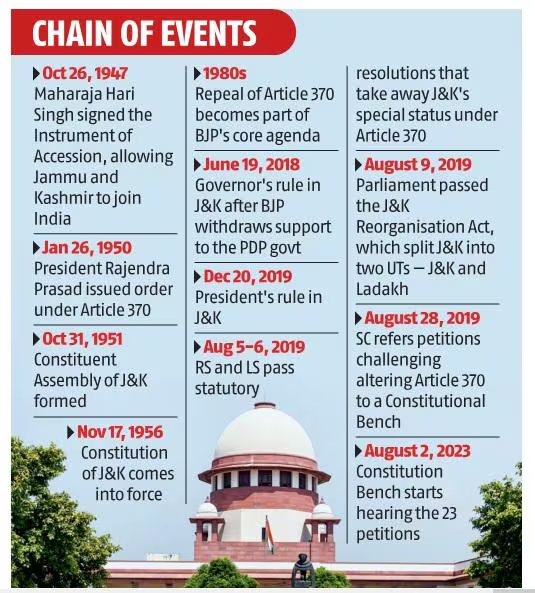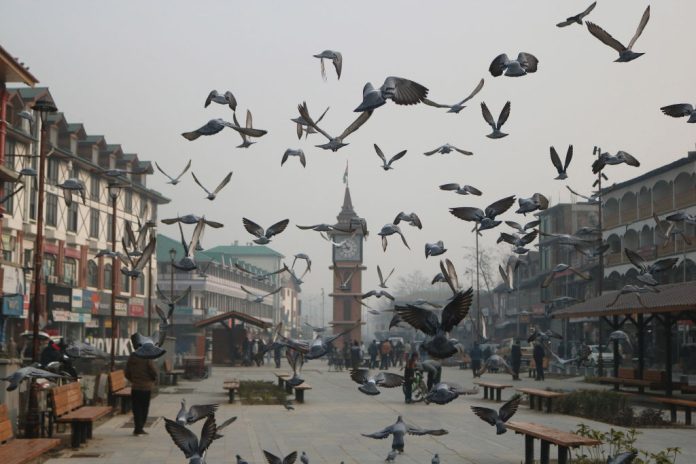As the fifth ‘death anniversary’ of Articles 370 and 35 [a] of the Indian Constitution comes and goes, debate on the decision of the Government of India to abrogate these articles gets ignited once again with some endorsing and others condemning this move.
Those who support this decision are citing the numerous positives of this path breaking decision with specific mention of how this development has enabled promulgation of various people oriented initiatives and schemes in both J&K as well as Ladakh. It has also ushered-in social justice by removal of gender biased antiquated laws.
They also mention the fact that with removal of erstwhile J&K’s ‘special status’, complete integration of India in which all citizens are equals [as envisioned in the Indian Constitution] has finally been achieved. They also maintain that by taking this momentous decision, New Delhi has wrecked Pakistan’s contrived Kashmir narrative that India was using the special status bait as an inducement to beguile the people of J&K.
However, naysayers emphatically denounce abrogation of Articles 35[a] as a “breach of trust” between the erstwhile state of J&K and the center without even elaborating, leave alone substantiating, this claim. This contention conveys an impression that accession of the former kingdom of J&K with the Union of India was conditional, which is completely untrue and grossly misleading.
The fact of the matter is that the then ruler of J&K had signed the instrument of accession in India’s favour without any preconditions. Islamabad may complain that he was under pressure at that time due to the tribal incursion, but since this false flag operation [codenamed Operation Gulmarg] was entirely planned and executed by the Pakistan Army, why blame the Maharaja or accuse New Delhi of arm-twisting him into acceding to India?

This camp also points out that not only has abrogation of Articles 370 and 35[a] failed to end militancy in J&K, but it has also led to emergence of several other armed groups like The Resistance Front [TRF], People’s Anti-Fascist Force [PAFF], Joint Kashmir Front [JKF] and Kashmir Ghaznavi Force [KGF]. While it’s a fact that some such groups have since emerged, however, to suggest that this development is due to abrogation of Article 370 is a blatant lie and referring to these uncouth terrorists as “militants” is the height of euphemism!
Article 370’s Abrogation
There’s no denying that after the abrogation of Article 370, separatists lost their ability to orchestrate large anti-India protests at the drop of the hat. Simultaneously, terrorist activities in the Kashmir Valley have also shown a perceptible decline. Most importantly, both the UN and international community refused to entertain Pakistan’s laughable stance that abrogation of Article 370 violates UNSC resolutions on Kashmir.
All these developments forced Pakistan Army’s spy agency Inter Services Intelligence [ISI], which controls terrorism in J&K to make changes in its strategy.
So, in a desperate attempt to give the world an impression that the people of Kashmir are up in arms against Article 370 abrogation, ISI has tasked its assets in J&K to undertake terrorist attacks, the responsibility of which is immediately taken by ghost groups like TRF and PAFF. However, as these groups have been targeting members of Kashmir’s minority community and migrant workers who have nothing to do with Article 370 abrogation, it’s abundantly evident that their aim is merely to create mayhem so as to disprove New Delhi’s claim of normalcy returning to Kashmir.
Pakistan’s enduring obsession with Kashmir is evident from the fact that it has launched two full scale military operations [in 1947 and 1965] to seize this region. Despite the failure to achieve this objective, the Pakistan Army didn’t give up its Kashmir dream and in 1999, ended up not only humiliating itself yet once again in the Kargil War besides suffering the ignominy of leaving behind the mortal remains of its dead soldiers.
The Ongoing Debate
The Pakistan Army sees the Kashmir issue as the “unfinished agenda of partition” and its inability to resolve the same militarily takes the sheen off Rawalpindi’s rhetoric on the superhuman prowess of its Army. In fact, for the Pakistan Army, J&K remains a stark reminder of its helplessness in accomplishing the nation’s objective, and so to save face it is content waging a proxy war in J&K.
So, only an imbecile would believe that terrorist activities being claimed by shadow groups are a manifestation of public opposition to abrogation of Article 370. That abrogation of Articles 370 and 35 [a] are non-issues for locals is evident from the positive feedback from both foreign and domestic tourists. Moreover, with the third G20 Tourism Working Group meeting that was held in Srinagar in May 2023 going off peacefully, to claim that there is unrest in Kashmir is nothing but a figment of imagination.
While playing politics over the Article 370 abrogation issue may be an irresistible and expedient proposition for certain politicians, but spreading disinformation just to stoke public discontent against this decision for self-serving interests is doing disservice to the people of J&K who have endured more than three decades of barefaced terrorism. The beleaguered terrorism-weary people of J&K most certainly deserve a break!
Let’s not forget that Article 370 was included as a ‘Temporary provision’ in the Indian Constitution, and with the J&K Constituent Assembly’s 1956 declaration that that “Jammu and Kashmir is and shall be an integral part of the Union of India,” Article 370 that provided ‘special status’ to J&K became redundant.
Nevertheless, this provision continued to exist and ended up creating disparity within the rights and privileges due to citizens of India, which goes against the basic tenets of democracy. So, even though very late, it’s heartening that this anomaly has finally been rectified!

